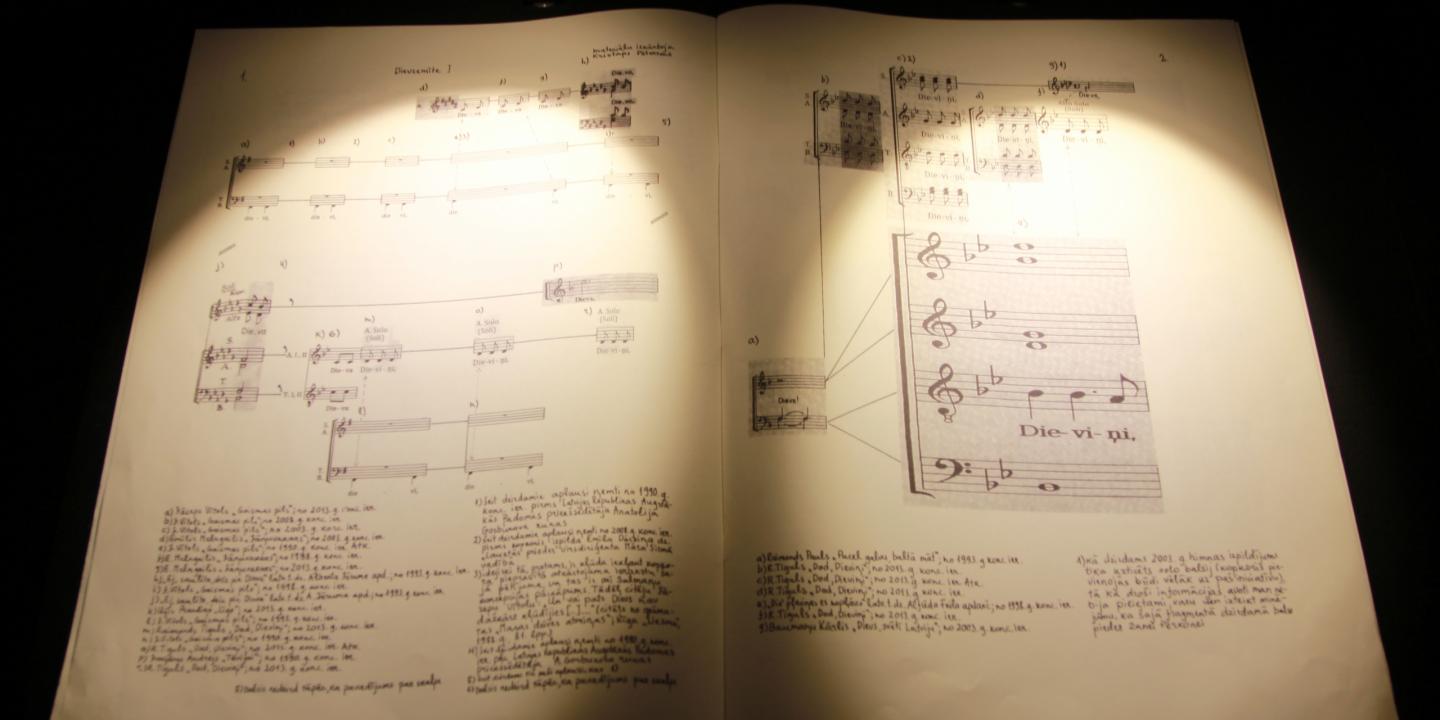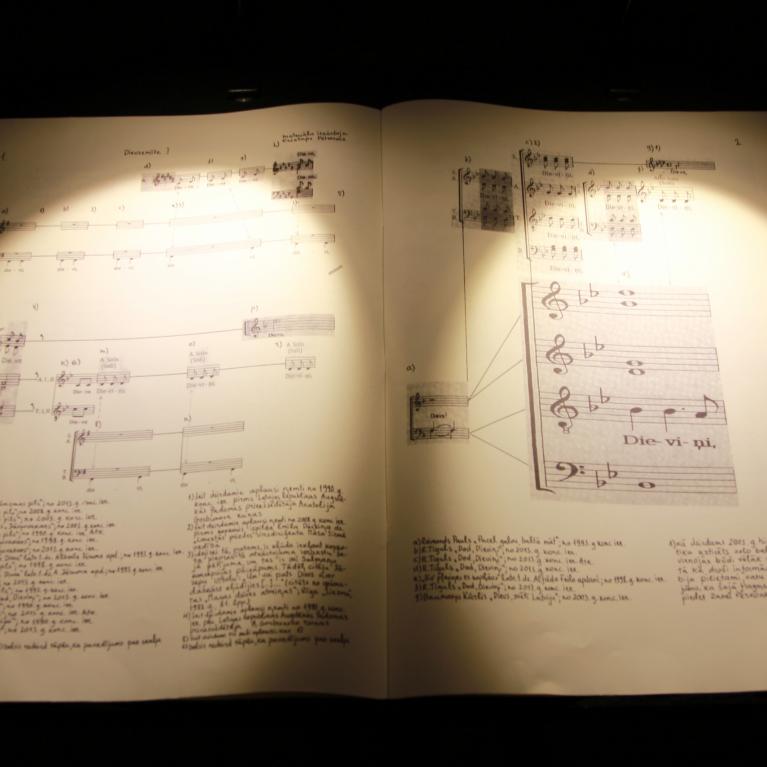Song
A conversation two years ago.
– We were singing in a choir concert on the Independence day and it really weighed me down.
– Why?
– We had to sing about shackles, the return to the yoke and the imminent death of a friend in a spray of bullets. An old song that was quite apt in the nineties.
Independence had just been regained yet the Soviet army was still here. But to be singing it twenty-something years later...
I felt that maybe the people who can wail like that instead of celebrating their incredible luck
do not really deserve their independence.
– What about the others?
– One singer, while learning the lyrics, was even driven to tears.
– I can imagine... Do you remember I told you that towards the end of the last Song Festival it seemed to me all the pronouns and conjunctions were just an
excuse for shouting out such words as ‘pain’, ‘tears’, ‘fate’ while being accompanied by fairly sloppy music?
– ‘Blood’, ‘soul’, ‘orphans’...
– I’ve been thinking for a while now that a really Latvian song ought to be written.
– The most downhearted song in the world?
...
In order to see if these impressions match up to reality, we collected all songs that have been performed during the closing concerts of The Latvian Song Festival since the restoration of independence in 1990. Do they reveal what, in a Latvian's opinion, a Latvian is like today? Or what, in his or her opinion, a Latvian should be like? After the words in the songs were added up, it turned out that the most commonly used words were "sun" (209) and "maiden" (193) in their various grammatical cases. However, the third place was occupied by a word whose popularity seemed unexpected. Because of this surprise, as well as due to its strong connotative meaning we decided to create a song whose text would consist solely of this word. Composer Kristaps
Pētersons brought the idea to life by contriving two new pieces.
"Dievzemīte I" (God's Little Land I), composed using the technique of collage, is made up of 184 excerpts from the Song Festival recordings – the number of times the word was repeated during the closing concerts. This document can be heard and seen in the permanent part of the exhibition. "Dievzemīte II" (God's Little Land II) is a piece for mixed choir a cappella. The choir "Maska", conducted by Jānis Ozols, will perform it in the Arsenāls foyer. Thee third version of the song will be created by DJ Monsta at the conclusion of the exhibition.
Special events:
2nd July at 18:00 and 19:00 – choir "Maska"
9th July at 18:00 and 19:00 – choir "Maska"
16th July at 18:00 and 19:00 – choir "Maska"
23rd July at 18:00 – DJ Monsta
Anna Salmane works mainly with photography, video and installation. She holds a bachelor's degree in Fine Art from Goldsmiths College, University of
London and a master's degree in Philosophy from University of Latvia. She has been participating in exhibitions since 2001 and has had solo exhibitions in England and Latvia.
Krišs Salmanis works with the moving image and installation. He holds a master’s degree from the Art Academy of Latvia and went on to a postgraduate course at the Academy of Media Arts Cologne. He has had solo shows in Latvia, Lithuania, Germany and the USA. In 2013 he and Kaspars Podnieks created the Latvian pavilion at the Venice Biennale.
Kristaps Pētersons holds a master’s degree in Composition from the Jāzeps Vītols Latvian Academy of Music. His music has been performed at such festivals as Skaņu Mežs, Arēna, Saxophonia, Rudens mūzika, Latvian New Music Days and the Introvert Music Festival. His first opera “Mikhail and Mikhail Play Chess” received the Grand Music Award.
Exhibition curator:
Šelda Puķīte, art historian

